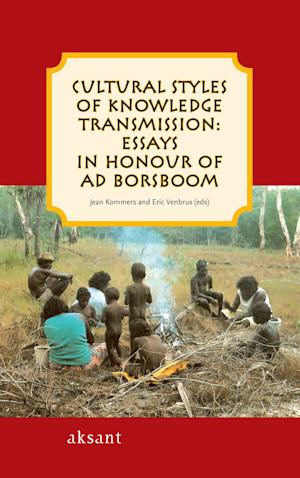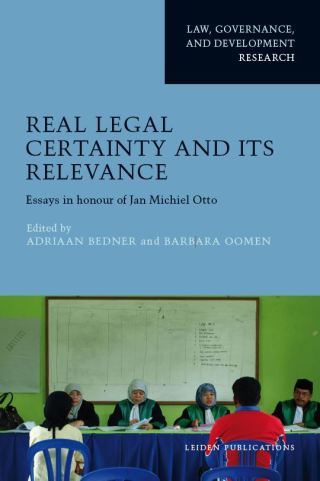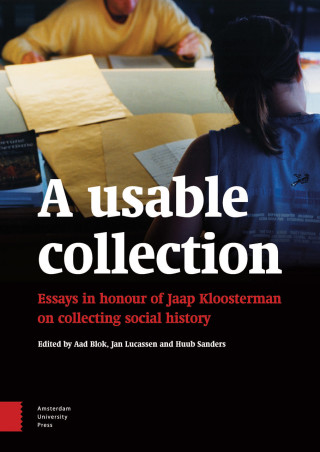
From 1st October, English-language AUP books will be published by Taylor & Francis. More details: AUP and Taylor & Francis Partner on English-Language Book Programme
J. Kommers, Eric Venbrux
Cultural styles of knowledge transmission
Essays in honour of Ad Borsboom
Anthropologist Dr Ad Borsboom, chair of Pacific Studies at Radboud University Nijmegen, devoted his academic career from 1972 onwards to the transmission of cultural knowledge. Borsboom handed the insights he acquired during many years of fieldwork among Australian Aborigines on to other academics, students and the general public. This collection of essays by his colleagues, specializing in cultures from across the globe, focuses on knowledge transmission. The contributions deal with local forms of education or pedagogics, the learning experiences of fieldwork and the nexus of status and education. Whereas some essays are reflexive, others are personal in nature. But all of the authors are fascinated by the divergent ways in which people handle ‘knowledge’. The volume provides readers with respectful representations of other cultures and their distinct epistemologies.
Authors
- Title
- Cultural styles of knowledge transmission
- Subtitle
- Essays in honour of Ad Borsboom
- Authors
- J. Kommers
- Eric Venbrux
- Price
- € 41,95 excl. VAT
- ISBN
- 9789052602981
- Format
- Paperback
- Number of pages
- 170
- Language
- English
- Publication date
- 14 - 02 - 2009
- Dimensions
- 13.5 x 21.5 cm
- Category
- Sociology and Social History
- Discipline
- Social and Political Sciences
Introduction - 6
Ad Borsboom - 10
Contents - 14
Maradjiri and Mamurrng - 18
Conversations with Mostapha - 24
Education in Eighteenth Century Polynesia - 30
From Knowledge to Consciousness - 37
When ‘Natives’ Use What Anthropologists Wrote - 43
The Experience of the Elders - 49
On Hermeneutics, Ad’s Antennas and the Wholly Other - 54
Bontius in Batavia - 59
Ceremonies of Learning and Status in Jordan - 65
Al Amien: A Modern Variant of an Age-Old Educational Institution - 70
Yolngu and Anthropological Learning Styles in Ritual Contexts - 75
Learning to Be White in Guadeloupe - 80
Learning from ‘the Other’, Writing about ‘the Other’ - 84
Maori Styles of Teaching and Learning - 90
Tutorials as Integration into a Study Environment - 96
The Transmission of Kinship Knowledge - 102
Fieldwork in Manus, Papua New Guinea - 107
Bodily Learning - 113
Just Humming - 119
A Note on Observation - 124
Fragments of Transmission of Kamoro Culture - 128
Getting Answers May Take Some Time… - 133
Conflict in the Classroom - 138
The Teachings of Tokunupei - 144
Consulting the Old Lady - 150
A Chain of Transitional Rites - 154
‘That Tour Guide – Im Gotta Know Everything’ - 159
The Old Fashioned Funeral - 166




